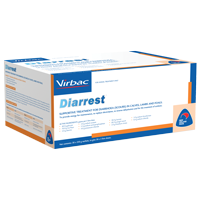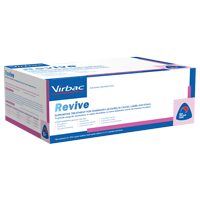
Preventing and Treating Calf and Lamb Scours: A Comprehensive Guide for Farmers
Calf and lamb scours is a leading cause of death in newborn calves and lambs, posing a significant threat to the health and productivity of your herd or flock. This article provides expert tips on how to prevent and treat this devastating condition, helping you protect your animals and your farm's bottom line.
What is calf and lamb scours?
Scours can be a common and highly contagious disease in newborn calves and lambs, characterised by severe, watery diarrhea that can be gray, green, or yellow, and may contain blood or mucus. This profuse diarrhea quickly leads to severe dehydration and electrolyte imbalances.
Affected animals may exhibit several signs of distress, including:
- Refusal to feed
- Appear weak, listless and depressed
- Inability to stand
- Have a persistently low body temperature
- Have sunken eyes and dry skin
What causes calf or lamb scours?
Scours most often caused by exposure to infectious pathogen. If the calf or lamb cannot mount an effective immune response against the infectious agent disease results. Calves and lambs largely rely on immunity from their mother's colostrum in the first weeks of life. To get good immunity they need to ingest the right quality and quantity of colostrum within the first 6-12 hours of life to give protection.
Common infectious agents include:
Rotavirus. This virus damages the intestinal lining, causing sudden and rapid-onset diarrhea, fluid loss, and dehydration.
Cryptosporidium parvum. This protozoan parasite destroys the intestinal lining, making it difficult for the animal to digest food and absorb nutrients.
Salmonella. These bacteria produce toxins and cause intestinal inflammation, which can lead to sepsis and even spread to humans.
Escherichia coli (E.coli). Certain strains of this bacteria produce toxins that disrupt the intestines' ability to absorb fluids, leading to fluid loss and, in severe cases, hemorrhagic diarrhea.
Less common causes include rapid changes to the type or volume of milk replacer, feeding too much milk or poorly formulated milk replacers, and the prolonged use of high doses of antibiotics.
The importance of prompt treatment
Due to rapid dehydration and electrolyte loss, scours can be fatal for vulnerable newborns. Prompt diagnosis and treatment are crucial and can mean the difference between life and death. Early intervention not only improves the outcome for the affected animal but also helps prevent the spread of contagious pathogens to the rest of the herd or flock.
Additionally, intestinal damage from scours can have a long-term impact on the animal's health, affecting digestion and nutrient absorption. This can lead to reduced life time productivity including, reduced growth rates, -, reduced nutrient absorption, and even poorer reproductive outcomes , impacting the overall productivity and profitability of your farm.
Treating calf and lamb scours
Treating scours requires immediate action and supportive care.
1. Isolate affected animals
Immediately separate sick calves or lambs from healthy ones to prevent the disease from spreading. Sick animals should be handled last, ideally with dedicated equipment that is disinfected after use. The handlers need to ensure they disinfect any equipment that moves between sick and healthy animals (including washing their clothes), and using foot baths to reduce disease spread House the affected animal in a clean, dry, well-ventilated area that is protected from extreme temperatures.
2. Rehydration is key
- Rehydration is the most critical treatment priority, as it restores fluid and electrolyte balance.
- If the animal can still suckle, oral electrolytes can be administered.
- For more serious cases, use an oral tube for hydration.
- For severely dehydrated animals that are unable to stand or refuse oral solutions, intravenous (IV) rehydration administered by a veterinarian is necessary.
3. Nutritional support
Scouring youngstock frequently end up in a negative energy balance. Oral supplementation needs to replace the fluid losses, and ensure they are taking in enough calories to meet their daily requirements. Electrolyte solutions can be alternated in separate feeds with milk or milk replacer which is higher in calories. If the calf or lamb is able to sit upright but will not accept bottle feeding, electrolytes or milk and milk replacer can be given using a tube by competent staff.
4. Antibiotic therapy
Antibiotic therapy may beneficial in cases with a bacterial cause. Discuss antibiotic use with your vet to ensure antibiotics are needed and the correct antibiotic is used depending on the diagnosis. Using antibiotics when not necessary can add unnecessary cost and labour, negatively change the animals microbiome and contribute to antibiotic resistance.
5. Talk to your Vet.
Talk to your vet about the use of non-steroidal anti-inflammatory drugs (NSAID) to reduce pain and encourage faster disease resolution. Young animals with scours treated with NSAID start eating and recover faster than non-treated animals.
Preventing calf and lamb scours
Preventing scours is always the aim. The key to prevention is minimising their exposure to pathogens in the environment and optimising the animal's immune health can build resilience against disease.
Building resistance
Colostrum is essential. Calves and lambs largely rely on immunity from their mother's colostrum in the first weeks of life. To get good immunity they need to ingest the right quality and quantity of colostrum within the first 6-12 hours of life to give protection.
Reducing exposure
Poor hygiene and close confinement can increase the spread of pathogens. Follow these guidelines to reduce risk:
- Design sheds so they are well ventilated, north facing and enable young animals to seek shelter under cover when needed.
- Keep pens clean, dry and sheltered, with adequate ventilation at all times.
- Do not over crowd animals- calves need a minimum of 1.5m2/ calf, with at least 2.5m2/ calf being preferable.
- Thoroughly clean and disinfect pens and feeding equipment between seasons and between groups of animals.
- Operate an ‘all-in’ ‘all-out’ system. Separate replacement calves from other groups of calves.
- Effectively disinfect protective clothing, equipment and footwear between groups of animals.
- Practice good bio-security, do not allow visitors through sheds/ onto the farm.
Prevention is always the safest approach
Many newborn animals are sadly lost to calf and lamb scours, and those that survive can suffer long-term effects. To safeguard the health of your herd or flock, protect them with a preventative strategy that involves vaccination, prompt colostrum feeding, and excellent hygiene protocols. Ask your veterinarian for more information and to find out what would work best for your farm.
Additional support for calves
Trace elements are vital for immune function, especially when the body is under stress. A trace element supplement can provide additional immune support.
A study in New Zealand farms showed that supplementing dairy calves with MULTIMIN®, a trace element supplement containing zinc, manganese, copper, and selenium, significantly boosted their immune response, resulting in less disease. . The study found that calves treated with MULTIMIN® at birth had a 52% reduction in disease and a 58% drop in death rates, during the first 35 days of life.
Note: MULTIMIN® is not approved for use in lambs less than 25kg.
1. Bates, A.J., Wells, M., Laven, R.A., Simpson, M. (2018). Effect of an injectable trace mineral supplement containing selenium, copper, zinc, manganese and chromium on health, and growth of dairy calves on four pastural dairy farms in New Zealand. June 2018.
For more information on preventing and treating calf and lamb scours, contact your veterinarian to develop a tailored prevention strategy for your farm.


